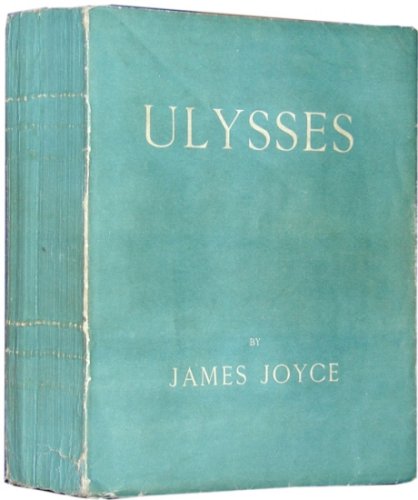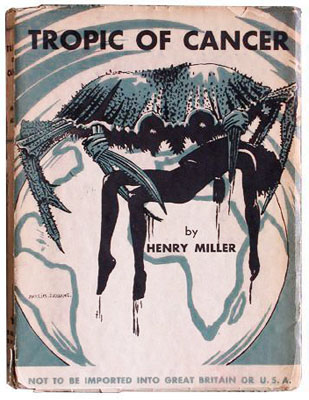I finished Lore Segal’s lovely and perplexing 1976 novella Lucinella today. It’s a witty and rewarding little book that deserves its own review, of course, and I’ll post one later this week. Lucinella is new in print again for the first time in a few decades courtesy of the good folks at Melville House Publishing. The jacket and the press release Melville House sent me both trumpet the book as a “cult classic.” I’ve been reading a number of so-called “cult books” lately–William Gaddis’s The Recognitions, Malcolm Lowry’s Under the Volcano, and John Crowley’s Little, Big. But I’m not really sure what a “cult book” might be. It got me to thinking, of course, and before I went to that ersatz oracle of our time (i.e., a Google search), I thought I’d try to define “cult book” in my own terms:
First, to be clear, a cult book is not (necessarily) a book about cults. It’s a book that has a cultish following (i.e., a group of devoted (perhaps obsessive) fans who work to push the work on anyone who will listen to them).
Second, cult books tend to address or include subject matters and issues outside of mainstream tastes (whatever that means). Of course, what’s open to public discourse changes over time, so what was once a cult book, over time, can soon move into mainstream or even canonical tastes. Hence, a large number of books and authors that once might have been cult are no longer cult.

But this doesn’t seem satisfactory: James Joyce’s Ulysses had to be initially smuggled into America; it’s now a canonical standard. William Burroughs’s Naked Lunch faced similar obscenity charges; decades later, Burroughs starred in a Nike ad. Yet, it seems that despite their eventual “mainstreaming” both books have something of a cult status–yet they don’t seem to need a cult the way that Gaddis or Lowry might. But what about Laurence Sterne’s Tristram Shandy? It clearly needs a cult to push it on people in the hopes of it actually being read, despite its canonical status. Which brings us to defining point three:
Third, the cult in question can not be purely academic. Faulkner would probably be a cult author if it weren’t for English professors and teachers with their syllabi and whatnot.
So, what is a cult novel? I have to think that, based on my definitions, cult status is always malleable. Thanks to the internet, readers have greater access to other readers, not to mention an exponentially expanded market of books to access. So I have to think back to high school and college, to those books that friends thrust on me, saying simply, “Read this, you have to,” books that I thrust on others, books that were secreted from hand to hand, clandestinely, until their covers had to be fixed with Duck tape. I think about Hunter S. Thompson’s Fear and Loathing in Las Vegas; anything by Kurt Vonnegut; Sylvia Plath’s The Bell Jar; anything by Charles Bukowski; Tropic of Cancer (or was it Tropic of Capricorn?). Antony Scaduto’s Bob Dylan biography made the rounds in my circle of friends, as did the Led Zep bio, Hammer of the Gods.

There was also a pirate copy of The Anarchist Cookbook that someone had downloaded off of something called the internet (this was 1994 or 1995) and printed on a dot matrix printer. William Burroughs, of course. William Gibson. Anthony Burgess. Philip K. Dick. Cerebus. Aldous Huxley (especially Ape and Essence). Lolita. On the Road. Camus. Kafka. In college: John Barth’s Lost in the Funhouse. J.G. Ballard. Douglas Coupland. David Foster Wallace’s Girl with Curious Hair, a book literally pressed on me my freshman year by a friend who simply could not believe I had never read Wallace. To some embarrassment, I suppose, Irvine Welsh. Thomas Pynchon. Hofstadter’s Gödel, Escher, Bach. After college, a refinement I suppose (grad school ironing out some kinks of course): Blood Meridian. W.G. Sebald. Roberto Bolaño. Jorge Luis Borges. The list goes on; I’m sure I’m forgetting hundreds. (Normally, I’d hyperlink most of these authors and books to Biblioklept posts, but there’s just too many. Interested parties, if they exist, may use the search feature).
My list is pretty expansive I suppose (and it’s truncated to be sure), and I concede that the term “expansive” seems at odds with the term “cult.” It seems that all literature that lasts must first build a cult, and I guess that’s a good thing. Anyway–I eventually did google “cult novels” and here’s a few lists. Plenty of overlap with some of the above citations, and some stuff I didn’t think of as well. Also, stuff that I think is too canonical, but, again, make up your own mind:
The Telegraph‘s 50 Best Cult Books
The Cult’s List (chuckpalahniuk.net)
We like this one from Books and Writers
And of course, we’d love to hear from you, dear reader.

Have you ever read The Painted Bird by Jerzy Kosiński? I had never heard of the book or the author until I bought it on the street last week.
Apparently, it sold millions of copies in the 1960’s and 1970’s and seems ripe for a cult following. Violent, misanthropic, but at the same time a tad hopeful. A beautiful, sad little gem.
LikeLike
i’ve never heard of the painted bird. your description, though intrigues me–and it also reminds me of a cult book missing from my list — celine’s journey to the end of the night. i also want to read the leopard by di Lampedusa after reading some of the lists i linked to.
LikeLike
I thought of you while reading it. Imagine that the boy in The Road at the end of the book goes off by himself at the end, except that he’s in rural villages in Nazi Germany rather than a nuclear wasteland. Terrible things happen and they are described in gruesome detail.
The writer won a number of awards, taught at Yale. Wrote a few very well regarded novels.
I gave the book to a friend of mine I saw on the train right after I finished. It was that good.
Journey to the End of the Night is another sad, sad book.
LikeLike
I read Journey to the End of the Night in Japan. I don’t remember forming near the same amount of empathy with the boy in the Celine, though, as I felt for the boy in The Painted Bird.
The Painted Bird is better, I think, and a few hundred pages shorter.
LikeLike
[…] I’ve been reading a number of so-called “cult books” lately– William Gaddis’s The Recognitions, Malcolm Lowry’s Under the Volcano, and John Crowley’s Little, Big. But I’m not really sure what a “cult book” might be. It got me to thinking, … David Foster Wallace’s Girl with Curious Hair, a book literally pressed on me my freshman year by a friend who simply could not believe I had never read Wallace . To some embarrassment, I suppose, Irvine Welsh. Thomas Pynchon. …More Here […]
LikeLike
I would add the books of Robert Anton Wilson — especially the “Illuminatus!” trilogy and “Cosmic Trigger.”
LikeLike
[…] On Cult Books | bibliokleptNov 8, 2009 So, what is a cult novel? I have to think that, based on my definitions, cult status is always malleable. […]
LikeLike
So Kosinski is now neglected enough that we’ve forgotten why he’s neglected? A short and well-balanced summary: http://www.artsandopinion.com/2007_v6_n6/routh-3.htm
LikeLike
[…] seems that the internet has dramatically changed what a cult novel might be/mean. (I wrote a bit about cult novels on this blog years ago, and I would expand the rough list I outlin…, which I won’t). The three books I picked today might be cult novels in the sense that they […]
LikeLike